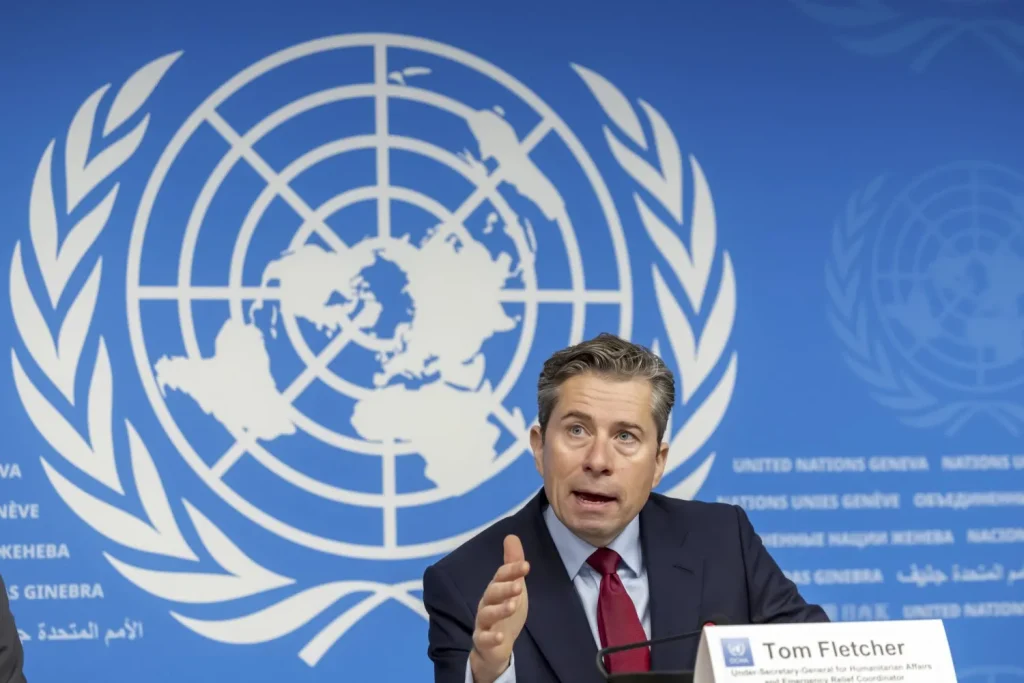The United Nations pleaded for more than $47 billion on Wednesday to deliver critical help next year, saying that rising conflicts and the climate crisis will leave hundreds of millions in need.
“The world is on fire,” the United Nations’ new humanitarian chief Tom Fletcher told reporters in Geneva, admitting he was looking forward to 2025 with “dread.”.
With horrific conflicts raging in Gaza, Sudan, and Ukraine as climate change and harsh weather take their toll, the UN predicts that 305 million people worldwide will require humanitarian assistance next year.
“We are dealing with a poly-crisis right now globally, and it is the most vulnerable people in the world who are paying the price,” Fletcher said, warning that rising inequality, violence, and climate change have produced a “perfect storm” of requirements.
When launching the Global Humanitarian Overview, Fletcher acknowledged that the UN and its partners would be unable to reach everyone in need.
The yearly plea by UN agencies and other humanitarian groups seeks $47.4 billion for 2025, somewhat less than this year’s appeal, which it claims is sufficient to assist the 189.5 million most vulnerable people.
Fletcher said that “there’s 115 million that we won’t be able to reach” under this approach.

Pointing to substantial “donor fatigue” affecting humanitarian operations around the world, he emphasised the importance of developing a “realistic” plan that will necessitate prioritisation and “really tough, tough decisions.”
“We’ve got to be focused on reaching those in the most dire need and ruthless,” the president stated.
As of last month, only 43% of the $50 billion appeal for the year had been met.
This year, underfunding has resulted in an 80 per cent reduction in food assistance in Syria, cuts to protection services in Myanmar, and reduced water and sanitation aid in cholera-prone Yemen, according to the UN.
The most significant impediments to supporting and safeguarding individuals in armed conflict, however, were pervasive violations of international law.
2024 has already become the deadliest year for humanitarian workers, exceeding the previous year’s total of 280 deaths.
“The global humanitarian system is overstretched, underfunded, and literally under attack,” Fletcher stated.
“We need a surge in global solidarity.”
Meanwhile, there are fears that Donald Trump’s approaching return to the presidency of the United States, the world’s largest humanitarian donor, would result in aid organisation funding being cut rather than increased next year.


